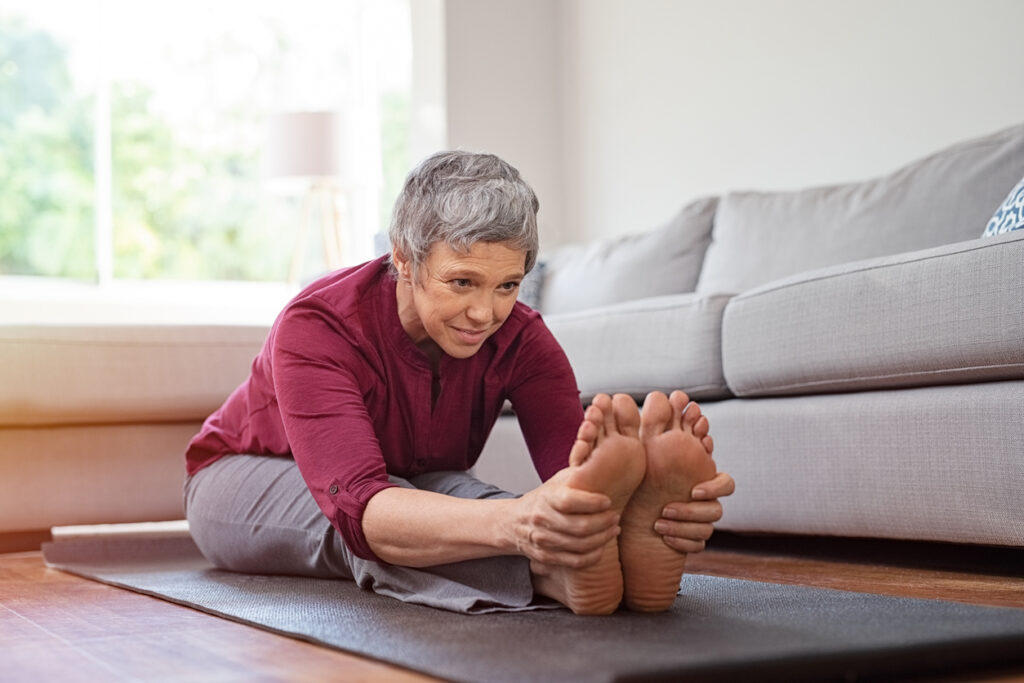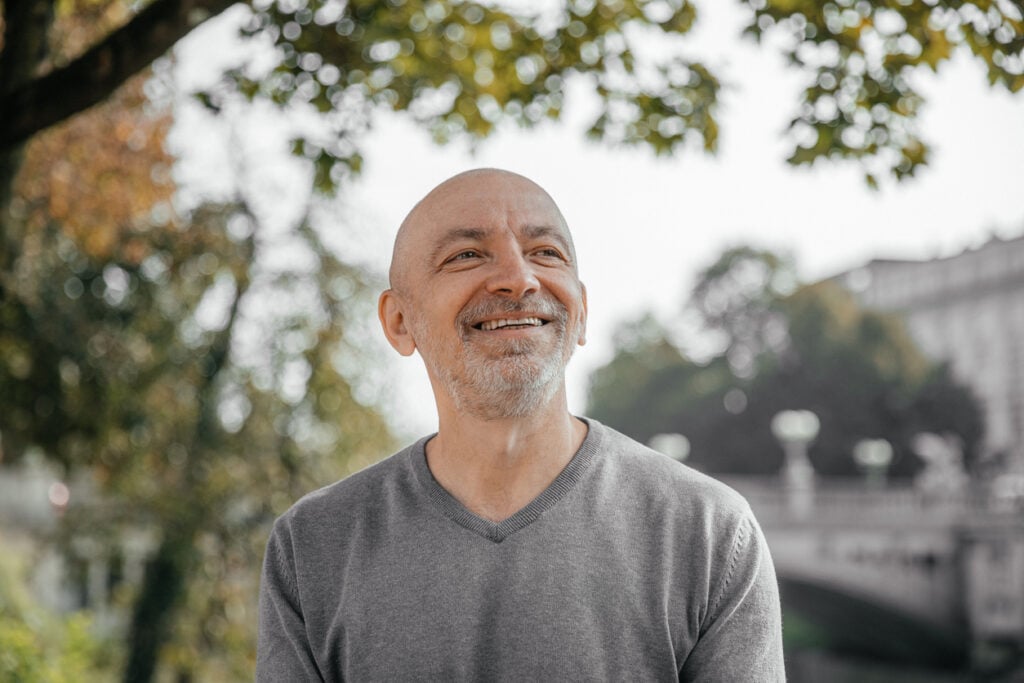You’ve been bombarded with alarming health news, but these science-backed facts will ease your worries and help you feel more confident about aging.

They want you to panic—but you don’t have to. Every day, the headlines scream about the latest health risks, making it feel like aging is a ticking time bomb. It’s exhausting, isn’t it? The truth is, much of the fear-mongering leaves out the bigger picture—one that’s far more reassuring.
You deserve peace of mind, not constant anxiety about what might go wrong. If you’re tired of the doom and gloom, these 13 facts will remind you that aging isn’t as scary as they make it seem.
1. The Media Often Exaggerates Health Risks to Grab Attention

Ever notice how health headlines scream about the worst-case scenarios? That’s because fear grabs attention—and clicks mean money. While real health concerns exist, many stories blow things out of proportion. For example, a study might suggest a tiny increase in risk, but the media spins it into a catastrophe.
The reality? Your body is more resilient than you think. Instead of spiraling over headlines, check reputable sources for balanced information. Research has shown that media exaggeration can lead to public misperceptions and non-compliance with health guidelines, as reported by experts at Frontiers.
2. You Have More Control Over Your Health Than You Realize

It’s tempting to believe that genetics dictate your destiny, especially when you hear stories about family health history or inherited conditions. But science consistently shows that lifestyle choices—like how you eat, move, rest, and manage stress—have a much greater impact than you might think. Up to 80% of chronic disease risk can be traced to behavior, not genes. That means your daily actions matter immensely, as mentioned by experts at Cleveland Clinic.
And the beauty is that you don’t have to overhaul your life overnight. Small steps—like walking around the block, cutting back on processed foods, or meditating for five minutes—can shift the tide in your favor. Every good habit you cultivate becomes a building block for a healthier, stronger you. It’s not about perfection; it’s about showing up for yourself, one positive choice at a time. That’s where real power lies.
3. Living Longer Doesn’t Mean Living Sicker

There’s a deeply ingrained myth that the older we get, the more likely we are to fall apart physically and mentally. Aging and chronic illness are not one and the same. In fact, many seniors today are thriving well into their 80s and 90s thanks to a mix of preventive care, active living, and improved medical treatments, according to researchers at National Institute on Aging. The average lifespan is increasing—and so is the average health span.
That means your golden years can still be vibrant, productive, and full of joy. It’s all about how you care for your body and mind. By staying active, maintaining strong social connections, and addressing minor health concerns early, you can enjoy a high quality of life well into your later years. Aging isn’t a decline—it’s a different phase, one that can be just as fulfilling if not more so than what came before.
4. Your Brain Isn’t Destined to Decline

Aging does bring changes to your brain, but that doesn’t mean mental sharpness disappears. Neuroplasticity—the brain’s ability to adapt and grow—remains with us throughout life. In fact, engaging your brain in new and challenging ways can help maintain and even improve cognitive function. Learning a new language, playing a musical instrument, or working on puzzles can all create new neural pathways that keep your mind nimble.
Even social interaction plays a vital role in brain health. Staying connected with others and having meaningful conversations stimulate memory, reasoning, and emotional processing. Brain health isn’t about avoiding aging; it’s about staying engaged, curious, and open to growth. You’re not powerless against decline. In many ways, you have the tools to keep your mind strong—and the freedom to choose how you use them.
5. Exercise Is a Secret Weapon Against Nearly Every Major Disease

When people think of exercise, they often imagine intense workouts or gym memberships. But the truth is, your body responds beautifully to even modest activity. Regular movement reduces your risk of heart disease, stroke, type 2 diabetes, and certain cancers. It also strengthens bones, improves balance, and keeps your joints limber. Simply put, movement is medicine—and it’s available to everyone.
What’s more, exercise boosts your mood and reduces anxiety, acting as a natural antidepressant. The key is finding something you enjoy. Whether it’s walking your dog, dancing in the kitchen, or stretching in the living room, it all counts. The goal isn’t to push yourself to exhaustion; it’s to stay consistent. Daily movement creates momentum, and momentum leads to vitality. Your future self will thank you for every step you take today.
6. You Can Start Healthy Habits at Any Age and Still See Results

It’s a myth that change only works when you’re young. In reality, your body continues to respond and heal no matter your age. Studies show that people in their 70s and beyond can build muscle, improve cardiovascular health, and sharpen cognitive skills with consistent effort. Quitting smoking, eating healthier, and managing stress can yield results in weeks—not years.
Your body is constantly working to repair and rebalance itself, and your choices can support that process. It might feel like too much time has passed, but it hasn’t. Whether you’re 55 or 85, every healthy decision you make creates a ripple effect. You’re not too late, too old, or too far gone. Start where you are. Your body is ready to meet you there and reward your efforts with strength, clarity, and resilience.
7. Stress Is More Dangerous Than Aging Itself—And You Can Control It

We often blame age for physical decline, but chronic stress is a far more insidious threat. Prolonged exposure to stress hormones like cortisol can weaken the immune system, raise blood pressure, and even damage the brain. It’s like having a slow leak in your health tank—one that quietly drains your vitality over time. But unlike many health risks, stress is something you can address head-on.
Mindfulness practices, deep breathing, time in nature, and nurturing hobbies are all proven ways to reduce stress and restore balance. Even laughter, gratitude, and simple human connection lower stress levels and boost immune response. You don’t need to eliminate every worry—you just need tools to respond differently. Managing stress isn’t a luxury; it’s essential self-care that keeps you healthier, happier, and more emotionally grounded.
8. Sleep Improves Your Health More Than Any Pill Ever Could

We live in a culture that often treats sleep as optional, something to cut back on when life gets busy. But sleep is foundational to health. It’s when your body repairs tissue, consolidates memory, and regulates hormones. Poor sleep contributes to a long list of health problems—from weight gain and mood disorders to cardiovascular disease and dementia. In contrast, quality rest revitalizes you from the inside out.
Creating a restful bedtime routine can transform your sleep. Try dimming lights an hour before bed, avoiding screens, and keeping your room quiet and cool. You might also explore calming activities like reading, meditation, or herbal tea. Prioritizing sleep isn’t lazy—it’s wise. A well-rested body and mind can handle stress, fight illness, and maintain energy. In a world obsessed with doing more, give yourself the gift of rest.
9. Most “Superfoods” Are Overhyped—But a Balanced Diet Works Wonders

The term “superfood” gets thrown around a lot, usually in connection with expensive, exotic ingredients. But health isn’t built on hype—it’s built on balance. A simple, nutrient-rich diet composed of whole foods gives your body everything it needs to thrive. Leafy greens, whole grains, healthy fats, and lean proteins are the real power players, even if they don’t have trendy labels.
Eating well doesn’t have to be complicated or costly. Choose colorful vegetables, minimize processed foods, and enjoy variety. Home-cooked meals made with love often nourish more deeply than any packaged product claiming miraculous benefits. Nutrition is about the long game, not one magic bullet. Trust your body, feed it wisely, and let common sense guide you—not marketing campaigns.
10. Laughter and Social Connections Are Powerful Health Boosters

We tend to overlook joy and connection when thinking about health, but their impact is profound. Loneliness has been linked to increased mortality risk, even more so than obesity or smoking. On the flip side, meaningful relationships, regular social interaction, and shared laughter significantly improve health outcomes and life satisfaction. Your heart and mind thrive in community.
Laughter truly is good medicine—it reduces stress, boosts immunity, and even relieves pain. Whether it’s a phone call with an old friend, a silly movie night, or chatting with neighbors, these moments feed your soul. Don’t underestimate the value of social time. It isn’t indulgent—it’s healing. Surround yourself with people who uplift you, and make time for laughter. It’s a prescription for vitality you’ll actually enjoy filling.
11. Modern Medicine Is Keeping Seniors Healthier Than Ever

Yes, the healthcare system has its flaws, but medical advancements have transformed aging in ways that were once unimaginable. From early diagnostics to personalized treatments, people are living longer and managing chronic conditions with greater ease. Diseases that once spelled certain decline can now be treated—or even prevented—thanks to innovations in medicine and technology.
Vaccines, improved surgeries, better medications, and wearable health devices help track everything from heart rhythm to oxygen levels. These tools put more power in your hands. Staying engaged with your healthcare providers, asking questions, and exploring options helps you make informed choices about your well-being. Modern medicine isn’t about extending life at all costs—it’s about improving the quality of the life you’re living right now.
12. Aging Skin Doesn’t Mean You’re Unhealthy—It’s Just Part of Life

We’ve been conditioned to fear every wrinkle as a sign of deterioration, but that’s a myth rooted in appearance-focused marketing. Skin changes with age because collagen production slows, elasticity fades, and sun exposure takes a toll over time. None of that means you’re sick or frail—it just means you’ve lived. Your skin tells your story, and it deserves care, not shame.
Taking care of your skin doesn’t require expensive creams or painful procedures. Gentle cleansing, regular moisturizing, and daily sunscreen go a long way. Staying hydrated, eating antioxidant-rich foods, and protecting your skin from harsh conditions help it stay healthy. Let go of unrealistic standards. Aging skin is natural. Treat it with the same compassion you’d give any other part of your beautiful, aging self.
13. A Positive Mindset Can Boost Your Health and Longevity

Your thoughts have more influence on your body than you might think. Numerous studies show that optimism and a positive attitude are linked to lower levels of inflammation, stronger immunity, and longer life expectancy. A hopeful perspective doesn’t mean ignoring challenges—it means choosing to see possibilities, even in difficulty. That choice can profoundly shape your health.
Practicing gratitude, reframing negative thoughts, and surrounding yourself with uplifting influences can shift your mental landscape. Self-compassion matters, too—being kind to yourself through mistakes and changes fosters emotional resilience. A positive mindset won’t erase every health issue, but it can help you navigate life with more energy, motivation, and peace. That’s a powerful form of healing—and it starts from within.
